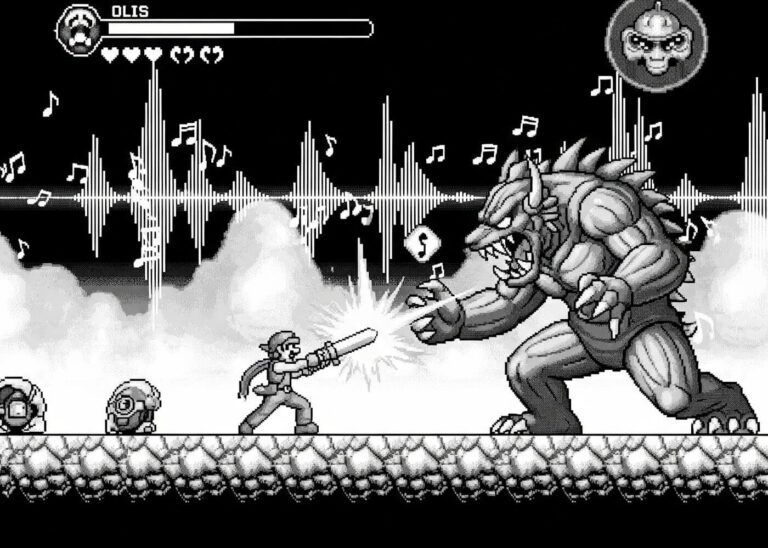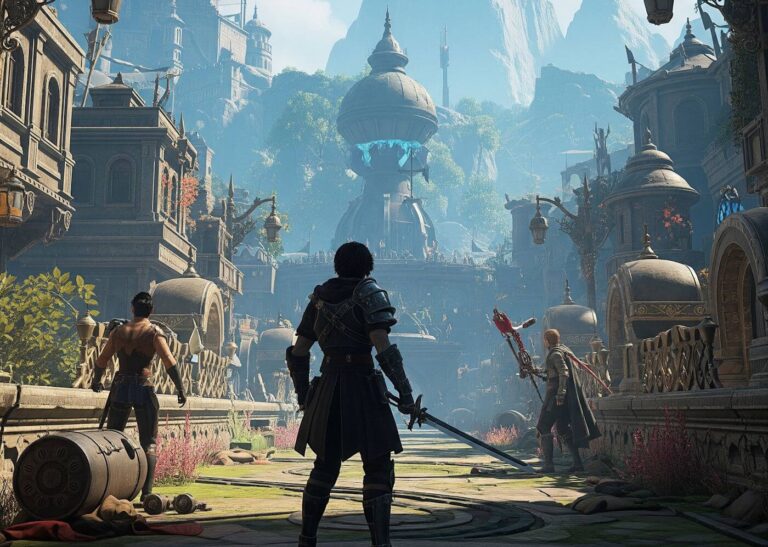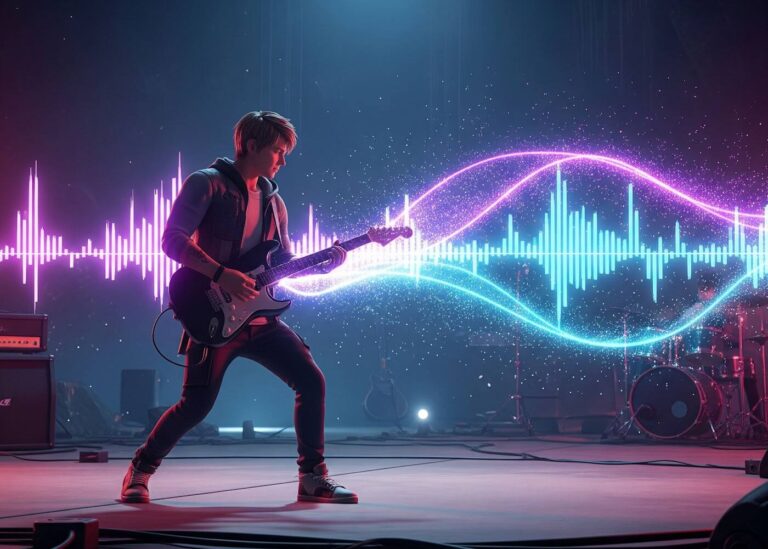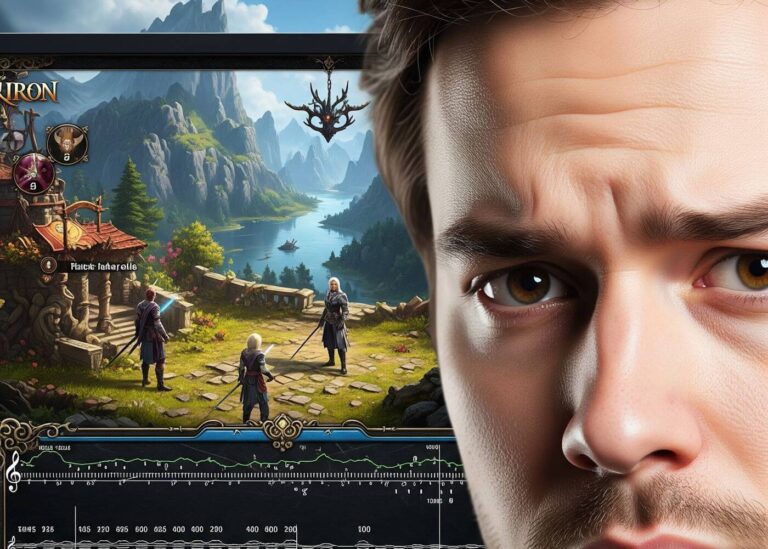Top 5 Iconic Video Game Soundtracks of All Time
Introduction to Video Game Soundtracks
The importance of soundtracks in video games cannot be overstated, as they play a crucial role in shaping the overall gaming experience. A well-crafted soundtrack can elevate the atmosphere of a game, drawing the player into its world and enhancing the narrative arcs. Music in video games serves not only to accompany gameplay but also to evoke emotions and create memorable moments that stay with players long after they have put down the controller.
The evolution of video game music reflects the broader changes in technology and gaming culture. Early video games relied on simple chiptunes, characterized by their limited sound capabilities, which gave rise to iconic melodies that many gamers still cherish today. As hardware capabilities improved, composers began to experiment with more complex arrangements, ultimately leading to the use of orchestral compositions that bring a cinematic quality to the interactive experience.
As we delve into the top five iconic video game soundtracks of all time, it is important to define the criteria for selection. The soundtracks considered here are not only memorable but also impactful, resonating with players and enhancing the storytelling elements of the games they accompany. Factors such as emotional engagement, thematic richness, historical significance, and the seamless integration of music with gameplay mechanics are essential when assessing these soundtracks. Each entry in our selection represents a unique contribution to the realm of video game music, showcasing the artistic potential that soundtracks can offer in enriching the virtual experience for players around the globe.
The Impact of Music on Gaming Experience
The integration of music into video games has become a pivotal element in enhancing the overall gaming experience. Soundtracks serve not merely as background noise but as a crucial aspect that influences player engagement, emotional responses, and immersion in gameplay. Various studies have demonstrated that music can significantly affect players’ moods and behaviors, shaping their experiences in profound ways.
One of the primary roles of music in gaming is to build tension and create atmosphere. For instance, during suspenseful gameplay moments, the tempo and volume of the soundtrack may increase, signaling to players that something crucial is about to happen. This strategic use of music heightens anticipation, compelling players to remain alert to in-game events. Conversely, soft melodies can invoke feelings of calm or nostalgia, often reflecting the game’s narrative or thematic elements. Such effects not only engage players on a deeper emotional level but also contribute to the storytelling aspects of the game.
Additionally, music is particularly effective in indicating changes within the gaming environment. The shift from peaceful exploration to intense combat, for instance, can be underscored by a sudden change in the soundtrack. This use of music as an audio cue enhances the player’s ability to navigate game mechanics and plot developments seamlessly. Studies in psychology suggest that players can better connect with their in-game objectives when accompanied by music that resonates with their emotional state.
Moreover, soundtracks often trigger memories and associations that enrich the gaming experience, creating iconic moments that players carry with them long after the console has been turned off. By harnessing the emotional power of music, game developers create captivating and unforgettable journeys that resonate with players, effectively elevating the gaming experience as a whole.
Criteria for Selecting Iconic Soundtracks
In the dynamic realm of video games, soundtracks play an integral role in enhancing gameplay and shaping player experiences. Identifying the soundtracks that rise to iconic status requires a thorough understanding of several key evaluation criteria. These criteria include originality, cultural impact, emotional connection, diversity of tracks, and lasting legacy.
Originality is paramount when assessing a soundtrack’s influence within the gaming landscape. Innovative compositions that push the boundaries of musical genres have the potential to resonate profoundly with players. A distinctive sound can establish a game’s identity, making its soundtrack unforgettable. For instance, soundtracks that combine classical elements with modern tech or juxtapose various musical styles often achieve a notable level of recognition.
Cultural impact refers to how a soundtrack transcends the gaming community to influence broader artistic circles. Iconic soundtracks often echo in popular culture, inspiring musicians, filmmakers, and other creators. These soundtracks may introduce new genres or themes, fostering a lasting dialogue between the gaming industry and the arts.
The emotional connection that players form with a soundtrack is another crucial criterion. Memorable melodies scoring pivotal moments in gameplay can evoke feelings of nostalgia, excitement, or even sadness. Soundtracks that successfully link the narrative and gameplay through emotional cues tend to resonate with players long after they have finished the game.
Diversity of tracks within a soundtrack can also enhance its iconic status. A well-rounded collection of music that encompasses various moods and styles adds richness to the game’s experience. Lastly, the lasting legacy of a soundtrack considers its ability to withstand the test of time. Iconic soundtracks remain relevant and beloved for years, often revisited by new and old gamers alike. Collectively, these criteria frame a robust foundation for evaluating what makes a video game soundtrack truly iconic.
Soundtrack #1: The Legend of Zelda: Ocarina of Time
‘The Legend of Zelda: Ocarina of Time’, released in 1998, is often hailed as one of the greatest video games of all time, a sentiment echoed by its unforgettable soundtrack. Composed by Koji Kondo, the score plays a pivotal role in creating an immersive experience that enhances the adventure and exploration elements of the game. Kondo’s compositions intricately weave together melodies that evoke a deep emotional response, allowing players to connect with the game’s narrative and environment on a profound level.
The use of the ocarina as a central gameplay mechanic further intertwines the musical elements with the player’s journey. Each song played on the ocarina not only offers gameplay advantages but also becomes a memorable part of the player’s experience. The act of playing these melodies fosters a sense of nostalgia and emotional attachment. Coupled with the expansive world of Hyrule that invites exploration, the soundtrack enriches the atmosphere, making every moment in ‘Ocarina of Time’ unforgettable.
Soundtrack #2: Final Fantasy VII
Released in 1997, Final Fantasy VII remains one of the most celebrated titles in the realm of video games, not only for its stunning visuals and complex narrative but also for its groundbreaking soundtrack composed by Nobuo Uematsu. The music in this game has become iconic, contributing significantly to the emotional depth and intensity of the storytelling. Each track serves a specific purpose, enhancing the player’s connection to the characters and universe.
The game’s most recognizable piece, “One-Winged Angel,” serves as the climactic theme for the antagonist, Sephiroth. This orchestral arrangement combines choral elements with dynamic instrumentals, capturing both the menace and the grandeur of the character. The piece plays during one of the game’s most pivotal moments, elevating the stakes and immersing players in the urgency of the confrontation. Uematsu’s ability to weave complex melodies with dramatic context creates an unforgettable auditory experience.
Another notable track, “Aerith’s Theme,” provides a stark contrast, embodying a sense of beauty and melancholy. This delicate melody resonates deeply with players, particularly during emotional scenes involving the character Aerith Gainsborough. The haunting quality of the track reflects her significance within the story, making her journey all the more impactful. Such contrast in the soundtrack not only enhances character development but also reinforces the overarching themes of loss and hope.
The diversity of Final Fantasy VII’s score is noteworthy, ranging from the upbeat and adventurous “Victory Fanfare” to the serene “Prelude,” all of which enrich the overall gameplay experience. Nobuo Uematsu’s masterful composition demonstrates how a soundtrack can elevate a video game into a profound narrative journey, leaving a long-lasting legacy in both gaming and music. The emotional weight carried by these carefully crafted tracks ensures that the soundtrack of Final Fantasy VII will be remembered as one of the finest in the history of video games.
Soundtrack #3: Super Mario Bros.
The soundtrack of Super Mario Bros., composed by Koji Kondo, stands as a monumental achievement in the realm of video game music. Released in 1985, the music accompanying Mario’s adventures not only defined the auditory landscape of the Nintendo Entertainment System (NES) but also established a benchmark for future video game soundtracks. The iconic tunes, characterized by their catchy melodies and upbeat tempos, immediately became synonymous with the Mario franchise and gaming as a whole.
The cultural significance of the Super Mario Bros. soundtrack cannot be overstated. Its simple yet memorable compositions have transcended generations, representing a pivotal moment in gaming history. The main theme, with its infectious rhythm and playfulness, is a reflection of the game’s engaging design, inviting players to embark on vibrant adventures. The score employs a minimalist approach, perfectly utilizing the limited sound capabilities of the NES, demonstrating how creativity can thrive within constraints.
Moreover, the music from Super Mario Bros. has influenced countless other games and composers. Many developers look to Kondo’s work as a source of inspiration when crafting their own soundtracks. Elements of his style, such as the incorporation of leitmotifs—musical phrases associated with certain characters or themes—have become a staple in contemporary game design.
Today, the melodies from Super Mario Bros. continue to evoke a sense of nostalgia and joy for players of all ages. Whether it is heard in nostalgic video game remixes, orchestral performances, or even in the casual whistling of fans, the iconic tunes remain a quintessential part of gaming culture. The enduring popularity of this soundtrack underscores its importance in the evolution of video game music and its ability to unite players across generations.
Soundtrack #4: Halo: Combat Evolved
The soundtrack of Halo: Combat Evolved, composed by Martin O’Donnell and Michael Salvatori, stands as a remarkable achievement in the realm of video game music. This iconic score is distinguished by its atmospheric and orchestral elements, which together create a profound and immersive experience for players. The music is meticulously crafted to align with the game’s epic narrative, driving home the poignant moments and intensifying the sense of grandeur that the series is known for.
From the first notes of the main theme, the soundtrack captures the essence of exploration and conflict inherent in the gameplay. The combination of vocal chants, lush strings, and percussive elements evokes a sense of both majesty and urgency, perfectly complementing the vast landscapes and intense battles players encounter. Each track is designed to enhance storytelling, making the player’s journey feel more significant and alive, ultimately contributing to the game’s success in captivating its audience.
The dynamic arrangement found in the score adapts to various gameplay scenarios, shifting from serene and contemplative melodies during exploration to explosive and adrenaline-fueled compositions during combat. This fluidity not only enriches the gaming experience but also establishes a symbolic relationship between music and action, a hallmark that many contemporary first-person shooter games strive to replicate. Furthermore, the influence of Halo: Combat Evolved‘s soundtrack extends beyond its original context, inspiring a new standard for video game music across the industry.
In essence, the monumental impact of the Halo: Combat Evolved soundtrack showcases how music can enhance player engagement and storytelling in video games, a lesson that continues to resonate with game developers today. The legacy of this score is undeniable, marking its place as one of the most iconic soundtracks in gaming history.
Soundtrack #5: Journey
The soundtrack of ‘Journey,’ composed by Austin Wintory, stands as a remarkable achievement in video game music, showcasing the potential of soundtracks to enhance gameplay through emotional depth. Released in 2012, this iconic composition reflects the game’s central theme of exploration and connection in a vast, desert landscape. Wintory’s score incorporates a variety of musical motifs, strategically timed to resonate with the player’s experiences and actions throughout the game.
The ethereal quality of the music plays a pivotal role in crafting an immersive atmosphere. As players traverse the visually stunning environments, the soundtrack delicately responds to their movements and interactions, providing a unique auditory experience. This dynamic interplay between music and gameplay fosters a profound emotional arc, elevating the player’s journey from mere entertainment to a deeply moving experience. The seamless integration of Wintory’s composition effectively mimics the emotional highs and lows encountered in the game, inviting players to reflect on their own personal stories as they embark on this shared adventure.
Conclusion: The Legacy of Iconic Soundtracks
The legacy of iconic video game soundtracks extends far beyond the confines of their original titles, resonating through both the gaming industry and popular culture. Composers have played a pivotal role in shaping not only the auditory experience of games but also enhancing the emotional depth and narrative engagement for players. The meticulous craftsmanship behind these soundtracks underscores the importance of music as a storytelling medium within the interactive landscape of video games.
As video game music continues to evolve, modern practices have embraced innovative approaches to celebrate these iconic scores. Orchestations of classic themes are frequently performed at live concerts worldwide, demonstrating the significance of these musical compositions beyond their original context. Events like the Video Games Live concert series blend visuals from beloved games with powerful orchestral arrangements, allowing fans to relive their favorite moments while appreciating the intricate work of composers. This growing acceptance of video game soundtracks as legitimate art forms reflects a broader recognition of the artistry involved in composition and sound design.
Additionally, the influence of these soundtracks has permeated other media. Iconic themes are often sampled or referenced in film, television, and even contemporary music, creating a bridge between gaming and mainstream culture. This cross-pollination not only honors the original works but also introduces a new audience to the world of video game music. As we continue to navigate through advancements in technology and production, the legacy of these soundtracks remains vital, shaping the future of musical storytelling in interactive entertainment. The appreciation for these compositions and their impact on both gamers and creators alike affirms their place in the pantheon of modern art forms.







